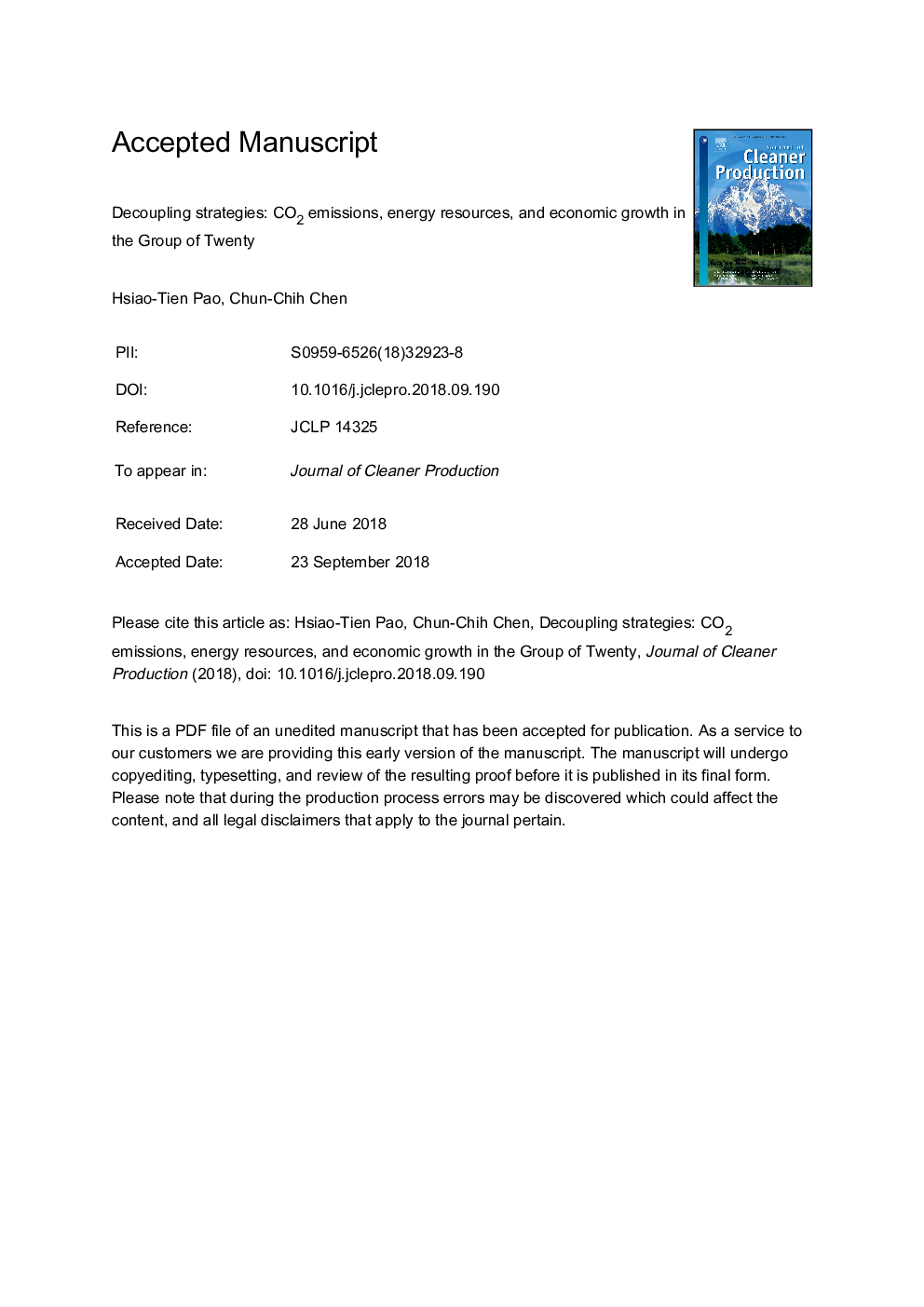| کد مقاله | کد نشریه | سال انتشار | مقاله انگلیسی | نسخه تمام متن |
|---|---|---|---|---|
| 11019814 | 1717621 | 2019 | 40 صفحه PDF | دانلود رایگان |
عنوان انگلیسی مقاله ISI
Decoupling strategies: CO2 emissions, energy resources, and economic growth in the Group of Twenty
دانلود مقاله + سفارش ترجمه
دانلود مقاله ISI انگلیسی
رایگان برای ایرانیان
کلمات کلیدی
موضوعات مرتبط
مهندسی و علوم پایه
مهندسی انرژی
انرژی های تجدید پذیر، توسعه پایدار و محیط زیست
پیش نمایش صفحه اول مقاله

چکیده انگلیسی
This study uses the Group of Twenty (G20) as a representative sample of global economic development. Within a panel Emissions-Energy-Output (EEO) framework over the period 1991-2016, to estimate the Carbon Kuznets Curve (CKC), the clean/fossil fuels energy consumption (CE/FF) elasticity of demand for carbon emissions, the causalities between emissions, energy, and economy, and thus to propose strategy for decoupling environmental pressure from economic growth (EG). The results of the descriptive statistical analysis suggest an absolute decoupling effect seems to have occurred with the drop in related environmental pressure and the continuation of economic growth. The panel cointegration test results show that there is a long-run equilibrium relationship between carbon emissions, FF, real GDP, and different types of CE [i.e., new renewable (Ren)/hydropower (Hydro)/nuclear (Nuc)]. The estimation results show that the CKC exists, and emissions are positively elastic to FF and negatively inelastic to Ren/Hydro/Nuc, although Ren's average per capita compound annual growth rate reached 14%. The results of panel vector error correction models reveal that 1) the use of nuclear energy is a key means for dealing with carbon emissions; 2) the substitutability/symbiosis exists between Ren/Hydro and FF; 3) the feedback hypothesis between EG and FF/Ren and the Hydro/Nuc-led growth hypothesis are confirmed. Therefore, energy-saving policies may hurt EG. A broad strategy for emissions, energy consumption, and economy decoupling are to support diversified, sustainable energy consumption mix (including SHP, Ren, and Nuc) and maintain stable economic growth, thereby improving energy efficiency and safety, reducing carbon dioxide intensity, and thus leading the world to absolute decoupling. Absolute decoupling is the only way to achieve a truly sustainable future.
ناشر
Database: Elsevier - ScienceDirect (ساینس دایرکت)
Journal: Journal of Cleaner Production - Volume 206, 1 January 2019, Pages 907-919
Journal: Journal of Cleaner Production - Volume 206, 1 January 2019, Pages 907-919
نویسندگان
Hsiao-Tien Pao, Chun-Chih Chen,